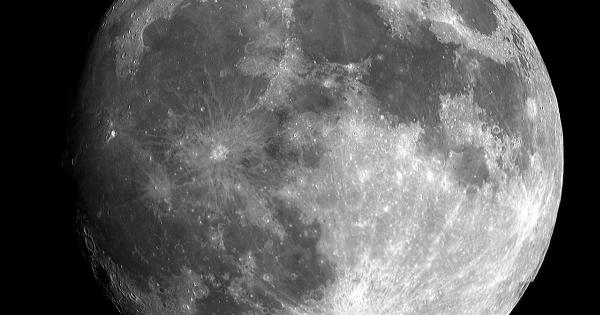The moon has always been a symbol of mystery, magic, and wonderment. It fascinates us with its phases, shapes, and beauty, and it influences us with its energy and gravitational force.
Many cultures and religions have believed in the Moon’s power to affect the natural world, including human health, behavior, and fertility. Even today, people still ask whether the Moon affects their sleep quality and menstrual cycle, and whether the Moon is a factor in their ability to conceive a child.
In this article, we will explore the relationship between the Moon, sleep, and fertility, and try to answer these questions with evidence and reason.
The Moon and Sleep Quality
Sleep is one of the most vital and complex processes of the human body, affecting physical, mental, and emotional health.
A good night’s sleep is essential for the brain to rest, repair, and regenerate, as well as for the body to strengthen the immune system, regulate hormones, and metabolize energy. On the other hand, a poor sleep quality can cause a range of negative effects, such as fatigue, irritability, memory impairment, depression, anxiety, and even chronic diseases like diabetes, obesity, and heart disease.
Therefore, anything that affects sleep quality is worth investigating, and the Moon is not an exception.
There are several reasons why the Moon’s presence and phases might affect sleep quality.
One of them is the Moon’s brightness, which can interfere with the body’s natural circadian rhythm by suppressing the production of melatonin, the hormone that regulates sleep-wake cycles. A study published in the Journal of Sleep Research in 2013 found that people who slept in a room with a bright full moon had lower levels of melatonin and slower brain waves than those who slept in a dark room.
However, the study was small and not randomized, so more research is needed to confirm the results and rule out other factors that may affect sleep quality, such as age, sex, medication, and lifestyle.
Another reason why the Moon’s phases might affect sleep quality is the gravitational force, which can influence the fluid balance and pressure in the body, including the brain.
Some people believe that the Full Moon causes more erratic and vivid dreams, sleepwalking, and insomnia, while the New Moon causes more peaceful and deep sleep. However, there is no strong scientific evidence to support these claims, and many studies have failed to find a consistent correlation between the Moon’s phases and sleep quality.
One of the most comprehensive studies, published in Current Biology in 2013, analyzed the sleep patterns of over 5,800 participants from five continents and found no overall effect of the lunar cycle on sleep duration or quality, although some individuals showed a slight variation depending on their geographical location and ethnicity.
The Moon and Menstrual Cycle
The menstrual cycle is a complex and sensitive process that involves the interplay of hormones, ovaries, uterus, and brain.
It is regulated by the hypothalamus, pituitary gland, and ovaries, which produce and respond to various hormones such as estrogen, progesterone, follicle-stimulating hormone (FSH), and luteinizing hormone (LH). The menstrual cycle lasts on average 28 days, but it can vary from 21 to 35 days, and can be affected by many factors, such as stress, diet, exercise, medication, and age.
Some women have irregular periods or experience menstrual disorders, such as premenstrual syndrome (PMS), dysmenorrhea (painful periods), or menorrhagia (heavy bleeding), which can affect their quality of life and fertility. Therefore, understanding the role of the Moon in menstrual cycle can be helpful for women’s health.
The idea that the Moon affects the menstrual cycle goes back to ancient times, when women lived in closer harmony with nature and observed the moon’s phases to predict their fertility and menstruation.
Many cultures believed that the Full Moon stimulated ovulation and menstruation, while the New Moon was a period of rest and renewal. However, modern science has not found a clear or consistent link between the lunar cycle and the menstrual cycle.
A review of 34 studies published in the Journal of Obstetrics and Gynaecology in 2013 found no significant association between the lunar phase and the onset or length of menstrual bleeding, although some studies reported slight variations depending on the lunar phase or the menstrual phase. Another study published in Human Reproduction in 2017 analyzed the menstrual cycle of 22,000 women from Denmark and found no evidence that the lunar cycle affected the time of ovulation or fertility.
Therefore, the Moon may have some symbolic or cultural value in menstrual health, but it is unlikely to have a direct physiological effect on the menstrual cycle.
The Moon and Fertility
Fertility is the ability to conceive and carry a child to term, and it depends on many factors such as age, health, genetics, lifestyle, and environmental factors.
Infertility is a common and distressing condition that affects about 15% of couples worldwide, and can have various causes such as hormonal imbalance, ovulation disorders, sperm defects, pelvic diseases, and genetic anomalies. Therefore, anything that might affect fertility is worth exploring, including the Moon.
Several studies and theories have suggested that the Moon affects fertility in different ways, some of which are based on anecdotal evidence or cultural beliefs, while others are based on scientific observation or hypothesis.
One of the theories about the Moon and fertility is related to the gravitational pull, which may influence the movement and release of sperm and ova.
Some proponents of lunar fertility believe that the Full Moon is a time of peak fertility and ovulation, while the New Moon is a time of low fertility or menstruation. They argue that the gravitational force of the Full Moon stimulates the secretion of hormones and fluids that aid in conception, and that the New Moon signals the shedding of the endometrium and the preparation for a new cycle.
However, there is no solid scientific evidence to support this theory, and many studies have shown no significant correlation between the lunar phase and the frequency or success of conception.
A study published in the Journal of the American Medical Association in 2005 analyzed the pregnancy outcome of over 1,200 women undergoing in vitro fertilization (IVF) and found no significant difference between the lunar cycle and the success rate of pregnancy, although some women reported to have preferred a certain lunar phase for their treatment.
Another theory about the Moon and fertility is related to melatonin, which is not only involved in sleep regulation but also in reproductive function.
Melatonin has been shown to have a protective effect on the follicles and ova, and to improve the quality of sperm and the development of embryos. Therefore, any factor that interferes with melatonin production or activity may affect fertility.
Some researchers have suggested that the Moon’s brightness and phases may affect the melatonin secretion and circadian rhythm, and thereby indirectly affect fertility.
A study published in the International Journal of Fertility and Sterility in 2016 investigated the melatonin levels of 60 infertile women during different lunar phases and found that the melatonin level was lower during the Full Moon phase than during the New Moon phase, although the difference was not statistically significant. The authors concluded that more research is needed to validate the results and clarify the role of melatonin in lunar fertility.
Conclusion
In conclusion, the relationship between the Moon, sleep, and fertility is complex, multifaceted, and partly mythological.
While the Moon may have some symbolic or psychological influence on people’s health and behavior, there is no strong scientific evidence to support the notion that the Moon directly affects sleep quality, the menstrual cycle, or fertility. However, the Moon can still inspire curiosity, awe, and imagination, and can serve as a reminder of the interconnectedness of the natural world and our own existence.





























